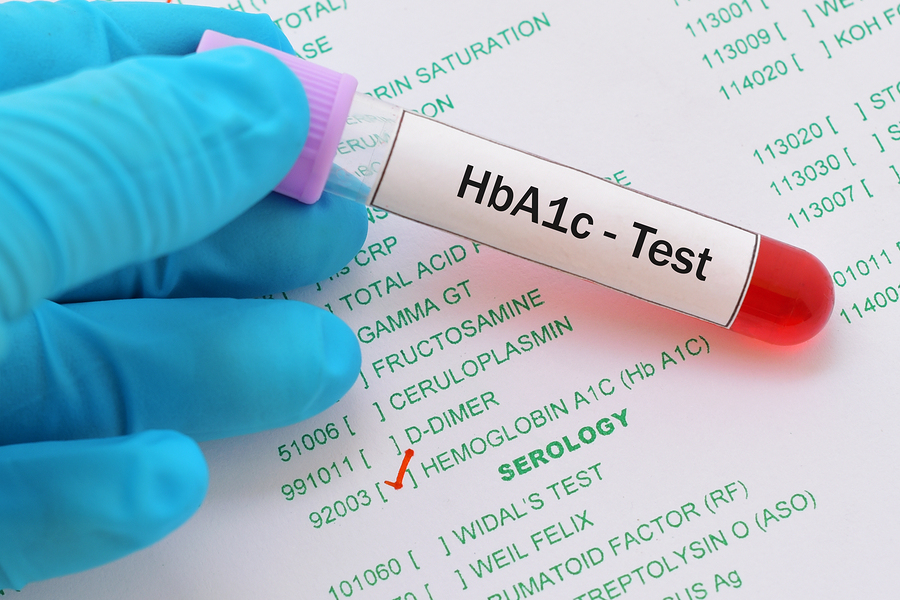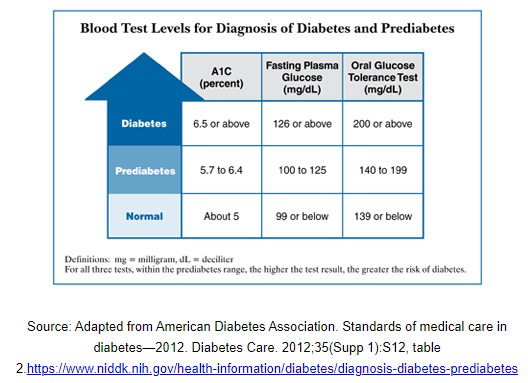One of my clients prompted me to research this question: Can drinking water lower your A1C?
Now before I let you know what I found let’s set the stage by defining the term “A1C.”
Your A1C is determined by a blood test that provides an estimated average of what your blood sugar level has been over the past 2-3 months. In the medical community this term A1C is also referred to has Hemoglobin A1C, HbA1C, or glycated hemoglobin.
Hemoglobin is the protein in your red blood cell that carries oxygen.
Glycated means that sugar in your blood stream has attached itself to the hemoglobin of your red blood cell.
This means that your A1C measures how much of your red blood cells have sugar attached to them. If your A1C test result is 7%, then 7% of your red blood cells have sugar attached to them.
And this score become a baseline measurement in helping to determine if you have diabetes, which is having too much sugar in your blood stream.
There are other blood tests and methods to determine if your blood sugar levels are too high. The following chart provides context to these measurements and methods and how they are reflected in determining if you have diabetes:
As you can see by the above chart you would want your A1C score to be as close to 5 as possible. Once you’re above 6 you’re considered to be prediabetic and 6.5 or higher diabetic.
Which now brings us back to my client’s question: Can Drinking Water Lower Your A1C?
Can Drinking Water Lower Your A1C
Here is the a portion of the email my client sent me, which prompted this article.
Dan,
In the last 3 years I have seen increased A1C levels. As such, I have been working on eating healthier, exercising, et al. This week I was thinking about what a friend of mine told me when he discovered he had diabetes. He said, prior to having it diagnosed, he was extremely thirsty. His body was trying to wash out the extra sugars.
It occurred to me last week, that one thing I could easily do is drink more water. So, I set a timer to during the day and started drinking 0.5 L every couple hours while I was at work. I noticed a significant decrease in blood sugar level over a shorter amount of time…..Hmmmm.
It’s simple enough to do, but I have NEVER heard anyone talk about this. Any thoughts?
In researching this, the answer is “YES” but with a but.
The but is that you need to drink enough water. As my client noticed, when he started to drink .5 liters of water every couple of hours, it significantly decreased his blood sugar level.
According to WebMD, “Water helps remove excess sugar from your blood through urine, and it helps you avoid dehydration.”
There are two potential ways drinking water helps in lowering blood sugar levels:
Method 1 – Blood volume is increased as you properly hydrate yourself. This increase in blood volume also means your kidneys can function better as they work to filter your blood. This filtering process helps to remove excess sugar and ketones out of your system.
Method 2 – Drinking water typically curbs appetite especially if the water is consumed prior to a meal. If you are less hungry, then you tend to each less during the day. This reduces the potential to consume foods that might be high in sugar. Or foods high in carbohydrates, like wheat, than can be converted to sugar.
There is also good research that suggests that proper hydration has a positive effect on blood sugar and helps to prevent type 2 diabetes from developing. In a 3000 person study, those that drank the most water (17 to 34 ounces per day) were 30% less likely to develop diabetes when compared to those who drank less water.
Plus your kidneys respond differently when you are dehydrated. Instead of eliminating water they retain the water. And release a hormone that raises blood sugar levels.
These means that proper hydration is critical to your health, your kidney function, and helping your body manage its blood sugar levels.
Now one final comment about this question: can drinking water lower your A1C. That comment is how much water you should be drinking. If you search this area, then you will find a wide range of opinions. But most health practitioners recommend eight 8-ounce glasses per day.
This equals about 2 liters or about a half gallon. It’s called the 8 x 8 rule, which makes it easy to remember.
But sodas do not count. And the reason why are the additives found in soda, especially diet sodas.
Pure water is what you need. And if you’re going to add anything to your water to help you drink more, then add lemons or limes to your water. Personally, I add liquid chlorophyll to my water. I added 1 tablespoon of liquid chlorophyll per 12 ounces of water and usually have 4 to 5 glasses per day.
Not only does this help me consume enough water, but the liquid chlorophyll also provides additional health benefits. Which is a topic for a future article.
Blessing Lives Through Nitric Oxide Therapy!
Dan Hammer


Leave a Reply
You must be logged in to post a comment.